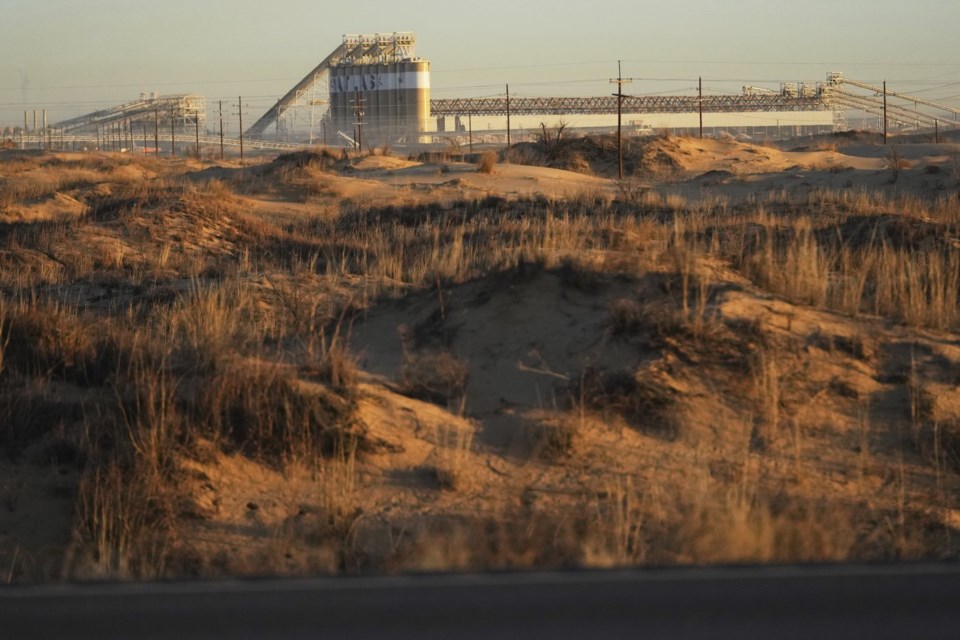CALGARY — Canadian oil and gas drillers that import vast amounts of sand from the United States are getting relief from counter-tariffs that could have added heavy costs to industry.
The sand is used in hydraulic fracturing — or fracking — to help free resources trapped in hard-to-access shale formations deep underground. It's among the imported U.S. goods on which Canada has imposed a surcharge in retaliation for President Donald Trump's flurry of tariffs.
A notice in the Canada Gazette newsletter published Wednesday lists dozens of goods for which "remission" is to be granted — including silica and quartz sand. The order applies to sand imported before Oct. 16.
"That is fantastic news for us," said Gurpreet Lail, president and chief executive of oilfield services industry group Enserva.
The retaliatory tariffs on sand alone would have added $275 million a year to industry costs, she said.
"We work on really lean, tight budgets, and that would have been a huge blow."
Lail praised Alberta Premier Danielle Smith for pressing the issue with Ottawa.
Canada's energy sector uses about eight to nine million tonnes of silica sand, and it needs to meet certain specifications, Lail said.
The bulk of that — about six million tonnes — comes from Wisconsin. The rest can be sourced in Canada, but Lail said there are too many regulatory hurdles for sand producers to scale up and meet industry's needs.
"And to flip that on a dime really quickly when retaliatory tariffs came into effect, we just weren't positioned that way," she said.
Lail said her group is still waiting to hear whether remission will be granted for other imported goods the industry needs, like coil tubing and drill bits.
In an "impact analysis statement" accompanying the order in the Gazette, the government said it received nearly 7,000 written submissions during a public comment period on proposed counter tariffs earlier this year.
"Canadian businesses, stakeholders, and partners generally confirmed their support for Canada’s surtaxes on certain U.S. goods," it said.
"However, some stakeholders noted concerns with their ability to shift supply chains away from the United States due to limited alternative sources of supply (short supply) or the requirement for certain inputs to comply with certification requirements, product specifications or contractual obligations."
Under specific circumstances — like when goods can't be sourced from elsewhere or would severely hurt the Canadian economy — businesses can be exempt from paying tariffs or be refunded for tariffs already paid.
Previously, a six-month tariff holiday was granted to goods used in Canadian manufacturing, processing and food and beverage packaging, as well as imports used to support public health, health care, public safety and national security objectives. Vehicles were also granted remission so long as they maintained Canadian production and followed through with planned investments.
This report by The Canadian Press was first published July 17, 2025.
Lauren Krugel, The Canadian Press



